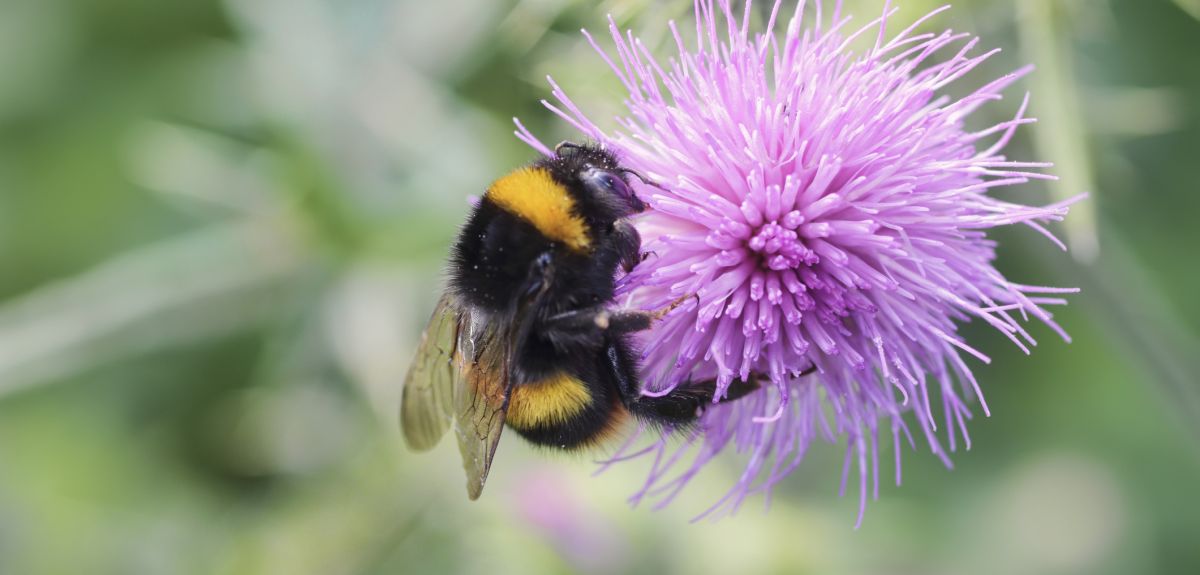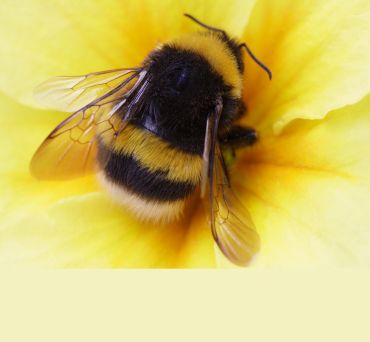
New study reveals that bees cannot taste even lethal levels of pesticides
New research from the University of Oxford has revealed that bumblebees cannot taste pesticides present in nectar, even at lethal concentrations. This means bumblebees are not able to avoid contaminated nectar, putting them at high risk of pesticide exposure and posing a threat to crop pollination. The research has been published in eLife.
This research is important when considering the use of pesticides on outdoor crops due to the risk posed to bees as they will not avoid drinking these compounds. Potentially, these findings could be applied towards searching for a non-toxic compound that tastes bad to bees and could be used as a "bee deterrent" on pesticide-treated crops that do not require insect pollination.
Dr Rachel Parkinson, Department of Biology, University of Oxford.
Bees are important pollinators of agricultural crops, but this can expose them to pesticides while they collect nectar and pollen, some of which are very toxic to bees. Bees are known to be adept at tasting and differentiating sugary solutions. Certain toxic compounds, like quinine, taste “bitter” to bees, so the researchers sought to find out whether this sense of taste could help them avoid drinking pesticides.
The researchers used two methods to test whether bumblebees (Bombus terrestris) could taste neonicotinoid and sulfoximine pesticides in nectar which mimicked that of oilseed rape (Brassica napus), and if they would avoid drinking pesticides over a very broad range of concentrations. First, they used electrophysiology to record the responses of neurons in taste sensilla (i.e., ‘tastebuds’) on the bumblebee’s mouthparts. This allowed them to track how often neurons ‘fired’ and therefore the strength of response to the taste. The researchers also tested the bumblebees’ feeding behaviour by offering them either pure sugar solutions or pesticide-laced sugar solutions to feed on.
The results demonstrated that the responses of the neurons were the same whether the bees drank sugar solution or sugar-containing pesticides. This indicates that the bumblebees' mouthparts do not have mechanisms to detect and avoid common pesticides in nectar.
 The study tested whether bumblebees (Bombus terrestris) could taste pesticide compounds. Credit: Sazonoff, Getty Images.
The study tested whether bumblebees (Bombus terrestris) could taste pesticide compounds. Credit: Sazonoff, Getty Images. The findings are important because they show that bumblebees cannot avoid pesticide exposure using their sense of taste.
Lead author Dr Rachel Parkinson (Department of Biology, University of Oxford), said: 'As bumblebees cannot taste pesticides and don’t experience immediate negative consequences from drinking them, they likely would not be able to avoid consuming nectar contaminated with pesticides in the field.'
Although bees did not drink less of the pesticide-laced solutions, the authors demonstrated “bitter” taste avoidance using the compound quinine. Quinine in sugar solution was deterrent to bees at high concentrations. At low concentrations, bees were observed to ingest less of the sugar solution, however the amount of time they spent in contact with the feeding solution was the same.
The study ‘Mouthparts of the bumblebee (Bombus terrestris) exhibit poor acuity for the detection of pesticides in nectar’ has been published in eLife.
 COVID-19 vaccination during pregnancy offers new insight into preeclampsia prevention
COVID-19 vaccination during pregnancy offers new insight into preeclampsia prevention
 Expert Comment: Should the UK relax clean energy targets?
Expert Comment: Should the UK relax clean energy targets?
 Existing hospital analysers offer a low-cost method to screen for fake vaccines
Existing hospital analysers offer a low-cost method to screen for fake vaccines